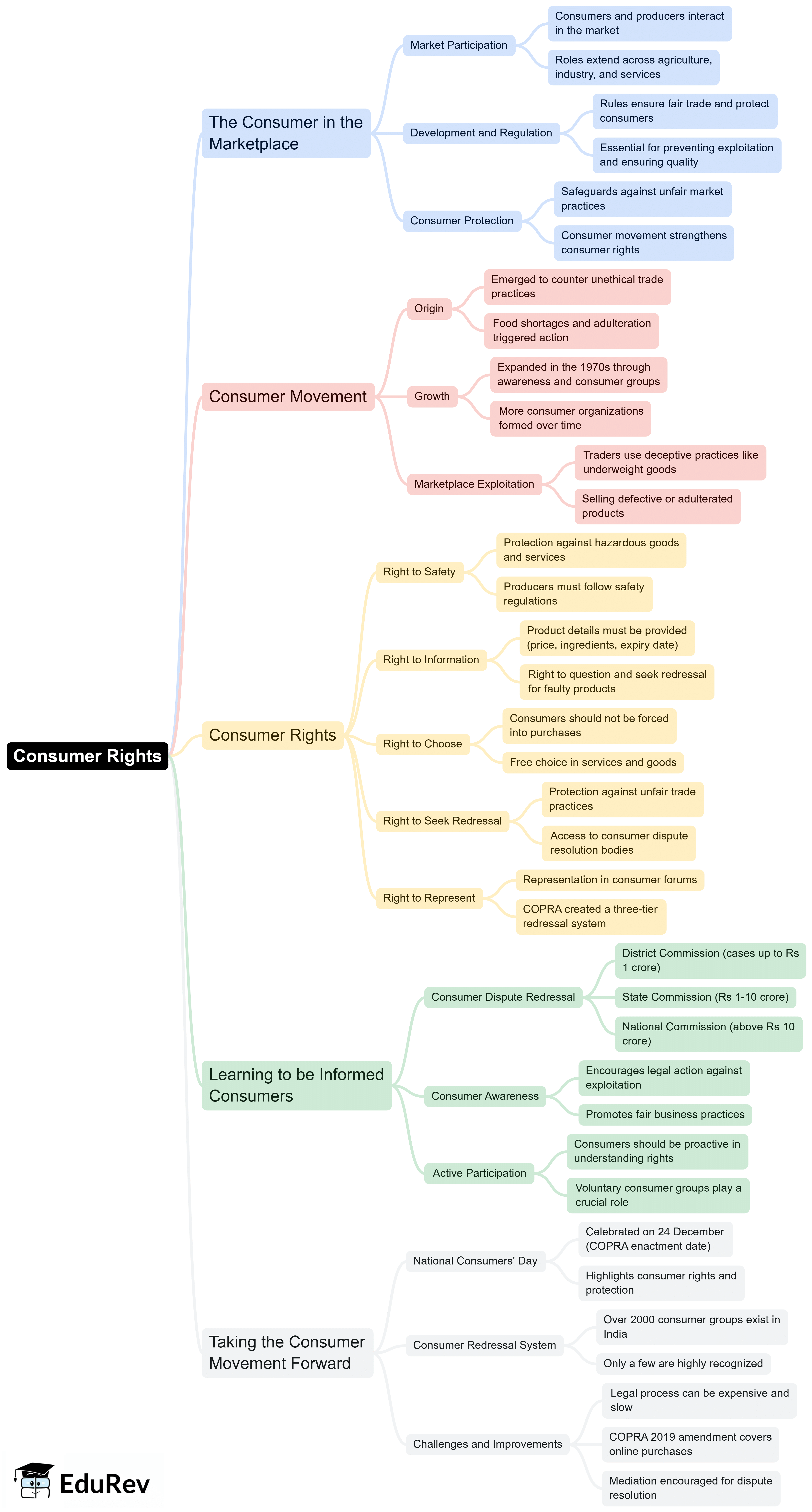Class 10 Exam > Class 10 Notes > Social Studies (SST) Class 10 > Mind Map: Consumer Rights
Mind Map: Consumer Rights | Social Studies (SST) Class 10 PDF Download

The document Mind Map: Consumer Rights | Social Studies (SST) Class 10 is a part of the Class 10 Course Social Studies (SST) Class 10.
All you need of Class 10 at this link: Class 10
|
66 videos|614 docs|79 tests
|
FAQs on Mind Map: Consumer Rights - Social Studies (SST) Class 10
| 1. What are the fundamental consumer rights that every individual should be aware of? |  |
Ans. The fundamental consumer rights include the right to safety, the right to be informed, the right to choose, the right to be heard, and the right to seek redress. These rights ensure that consumers are protected from harmful products, receive adequate information about products, have access to a variety of choices, can express their concerns, and have the ability to seek compensation for grievances.
| 2. How can consumers protect their rights effectively? |  |
Ans. Consumers can protect their rights by being informed about the products they purchase, understanding the terms and conditions, and keeping receipts as proof of purchase. They should also be aware of the complaint mechanisms available, such as consumer forums or regulatory bodies, and actively participate in reporting unethical practices to ensure their rights are upheld.
| 3. What should a consumer do if their rights are violated? |  |
Ans. If a consumer's rights are violated, they should first try to resolve the issue directly with the seller or service provider. If that fails, they can file a complaint with a consumer protection agency or a consumer forum. It's important to keep all relevant documentation, such as receipts and correspondence, to support their claim.
| 4. What role do government regulations play in protecting consumer rights? |  |
Ans. Government regulations play a crucial role in protecting consumer rights by establishing laws and guidelines that businesses must follow. These regulations ensure product safety, fair trade practices, and the provision of accurate information to consumers. Regulatory bodies also oversee the enforcement of these laws and handle consumer complaints.
| 5. Why is consumer education important in the context of consumer rights? |  |
Ans. Consumer education is important because it empowers individuals with knowledge about their rights and responsibilities. When consumers are educated, they are more likely to make informed choices, recognize when their rights are being infringed upon, and take appropriate actions to protect themselves. This leads to a more equitable marketplace and encourages businesses to adhere to ethical practices.
Related Searches
















